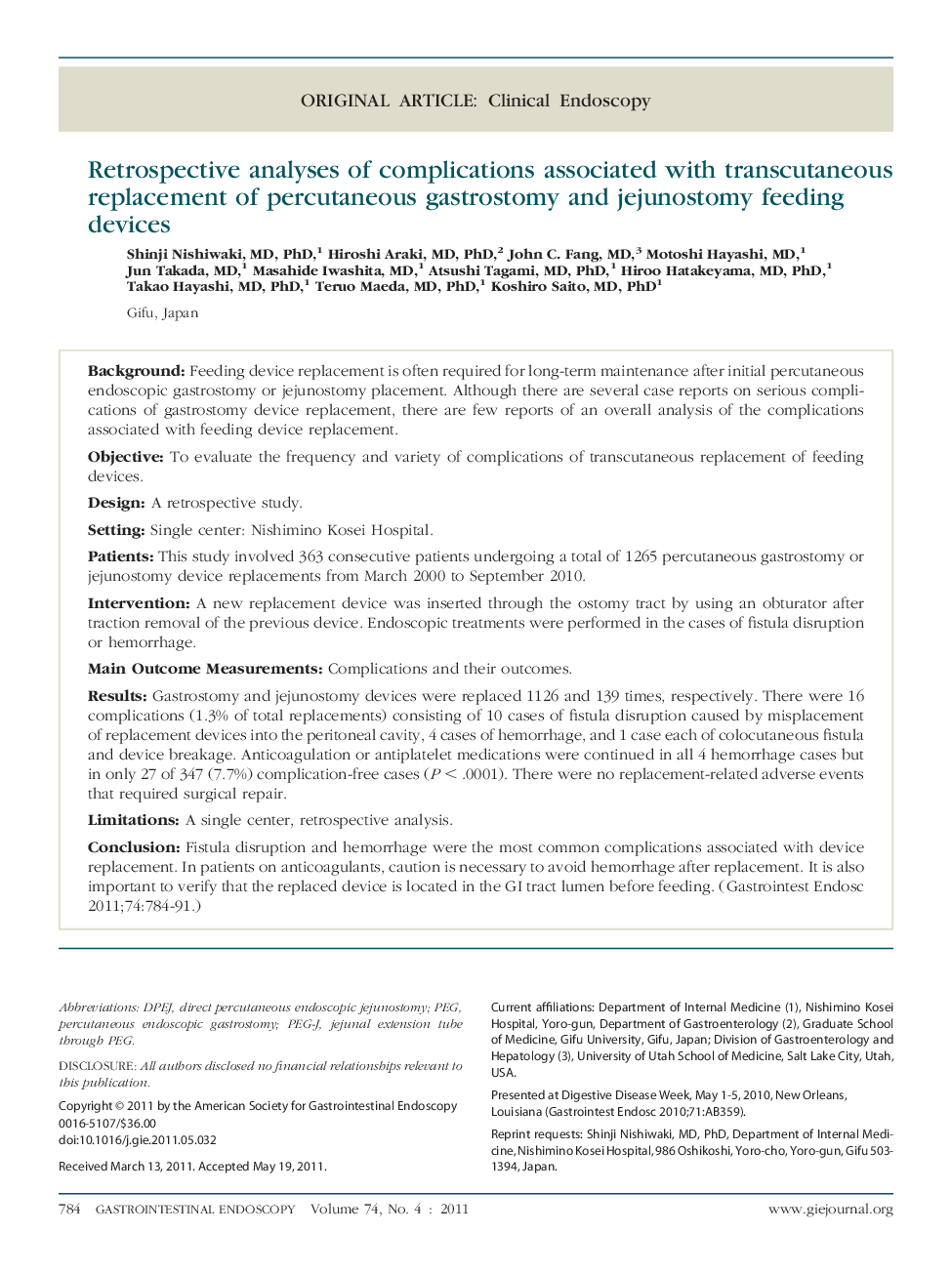| کد مقاله | کد نشریه | سال انتشار | مقاله انگلیسی | نسخه تمام متن |
|---|---|---|---|---|
| 3304521 | 1210336 | 2011 | 8 صفحه PDF | دانلود رایگان |

BackgroundFeeding device replacement is often required for long-term maintenance after initial percutaneous endoscopic gastrostomy or jejunostomy placement. Although there are several case reports on serious complications of gastrostomy device replacement, there are few reports of an overall analysis of the complications associated with feeding device replacement.ObjectiveTo evaluate the frequency and variety of complications of transcutaneous replacement of feeding devices.DesignA retrospective study.SettingSingle center: Nishimino Kosei Hospital.PatientsThis study involved 363 consecutive patients undergoing a total of 1265 percutaneous gastrostomy or jejunostomy device replacements from March 2000 to September 2010.InterventionA new replacement device was inserted through the ostomy tract by using an obturator after traction removal of the previous device. Endoscopic treatments were performed in the cases of fistula disruption or hemorrhage.Main Outcome MeasurementsComplications and their outcomes.ResultsGastrostomy and jejunostomy devices were replaced 1126 and 139 times, respectively. There were 16 complications (1.3% of total replacements) consisting of 10 cases of fistula disruption caused by misplacement of replacement devices into the peritoneal cavity, 4 cases of hemorrhage, and 1 case each of colocutaneous fistula and device breakage. Anticoagulation or antiplatelet medications were continued in all 4 hemorrhage cases but in only 27 of 347 (7.7%) complication-free cases (P < .0001). There were no replacement-related adverse events that required surgical repair.LimitationsA single center, retrospective analysis.ConclusionFistula disruption and hemorrhage were the most common complications associated with device replacement. In patients on anticoagulants, caution is necessary to avoid hemorrhage after replacement. It is also important to verify that the replaced device is located in the GI tract lumen before feeding.
Journal: Gastrointestinal Endoscopy - Volume 74, Issue 4, October 2011, Pages 784–791